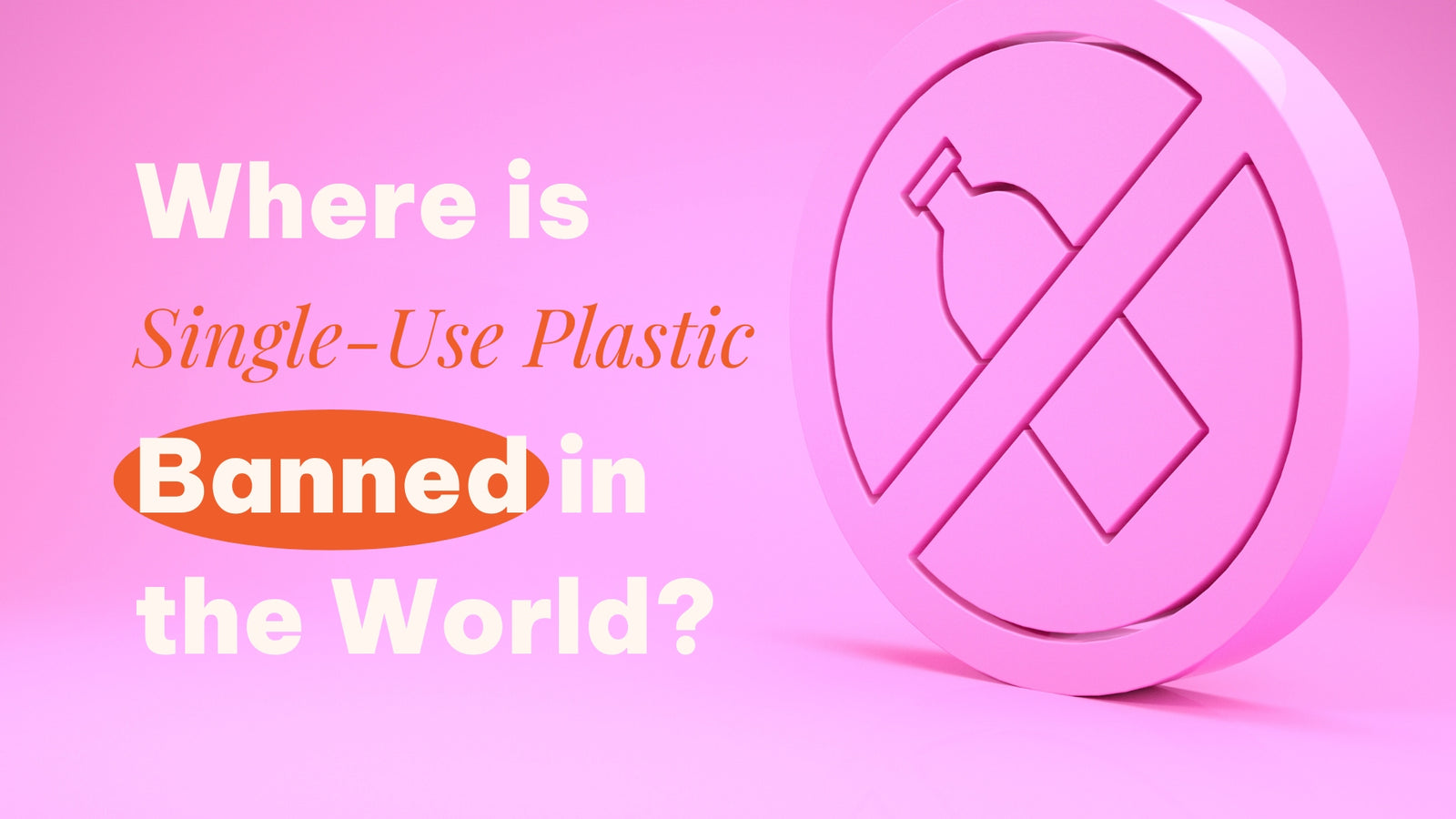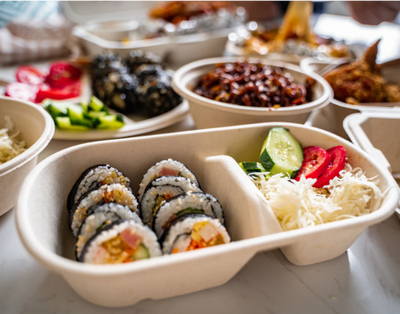Single-use plastic has become a significant environmental concern due to their widespread use and subsequent disposal issues. These plastics, designed for one-time use, contribute heavily to global pollution, harming wildlife and ecosystems. In response, many countries around the world have implemented bans and restrictions on single-use plastics, aiming to reduce their environmental impact. This blog post will explore where these bans are in place and highlight innovative solutions like EQUO's compostable products, which offer an effective way to combat plastic pollution.
The Need for Single-Use Plastic Bans
Single-use plastics, including items like straws, bags, cutlery, and packaging, are designed for convenience. However, their convenience comes at a significant cost. These items can take hundreds of years to decompose, leading to long-term pollution and harming marine and terrestrial life. Microplastics, tiny particles that exist when larger plastic items break down, have infiltrated our food chain, posing health risks to humans and animals alike. Recognizing these dangers, numerous countries and regions have taken bold steps to ban or limit the use of single-use plastics.

Countries Leading the Charge
1. European Union
The European Union has been a frontrunner in the fight against single-use plastics. In 2019, the EU approved a directive to ban several single-use plastic items by 2021. These items include plastic cutlery, plates, straws, balloon sticks, and cotton buds. The directive also mandates that by 2025, plastic bottles must contain at least 25% recycled content.
2. Canada
Canada announced their intention to ban harmful single-use plastics by the end of 2021. The ban includes items such as plastic straws, stirrers, six-pack rings, cutlery, and foodware made from hard-to-recycle plastics. This initiative is part of Canada's broader strategy to achieve zero plastic waste by 2030.
3. India
India has set an ambitious target to eliminate single-use plastics by 2022. Various states in India have already implemented bans on certain single-use plastic products. For example, Maharashtra has banned plastic bags, cutlery, and bottles. This move is part of India's broader commitment to tackle plastic pollution and promote sustainable alternatives.
4. Kenya
Kenya is known for having one of the strictest bans on plastic bags. Since 2017, anyone caught producing, selling, or using plastic bags faces hefty fines or imprisonment. This measure has significantly reduced plastic bag pollution in the country and has set a clear example for other nations

5. New Zealand
New Zealand banned single-use plastic bags in 2019. The ban applies to all retailers and encourages the use of reusable bags. This step is part of New Zealand's efforts to reduce plastic waste and protect its unique environment.
EQUO's Compostable Products: A Sustainable Solution
While bans on single-use plastics are a crucial step in combating pollution, finding effective and sustainable alternatives is equally important. One company leading the charge in this area is EQUO, which offers a range of compostable products designed to replace traditional plastics.
What Makes EQUO's Products Stand Out?
EQUO's products are made from natural, renewable materials such as sugarcane, coconut, and coffee, making them a sustainable choice for consumers and businesses alike. These materials break down naturally and safely in the environment, reducing the impact of plastic waste.
Compostable Straws
EQUO's compostable straws are made from materials like rice, coconut, sugarcane, coffee, and grass. These straws work amazingly in any kind of beverage, allowing you to enjoy your drinks without harming the environment, as they leave naturally without anyharmful residues. They are a perfect example of how sustainable alternatives can seamlessly replace single-use plastics.

Cutlery
EQUO also offers compostable cutlery. These products are designed to provide the same convenience as plastic versions but without the environmental damage. Made from materials such as sugarcane and coffee, EQUO’s cutlery decomposes naturally, returning to the earth without causing pollution.

Foodware
Packaging is another area where EQUO excels. Our sustainable packaging solutions are designed to reduce plastic waste significantly. By opting for EQUO’s compostable packaging, businesses can demonstrate their commitment to sustainability and reduce their environmental impact.

The Benefits of Compostable Products
Switching to compostable products like those offered by EQUO provides several benefits:
- Environmental Protection: Compostable products decompose naturally, reducing pollution and protecting wildlife.
- Sustainability: Using natural materials helps promote sustainable resource use.
- Consumer Appeal: Eco-friendly products are increasingly popular among consumers who are conscious of their environmental impact.
- Compliance: As more regions implement plastic bans, using compostable products ensures compliance with new regulations.
Conclusion
The global effort to ban single-use plastics is a testament to the increasing awareness of environmental issues and the need for sustainable solutions. From the European Union to Kenya, nations are taking bold steps to reduce plastic waste and protect our planet. Companies like EQUO are leading the way with innovative compostable products that offer a practical and eco-friendly alternative to traditional plastics. Together, through policy, innovation, and individual action, we can move towards a more sustainable future and ensure the health of our environment for generations to come.
As the movement against single-use plastics grows, staying informed and making environmentally conscious choices will be crucial. By embracing sustainable alternatives and supporting initiatives that reduce plastic waste, we can all contribute to a cleaner, healthier planet.


